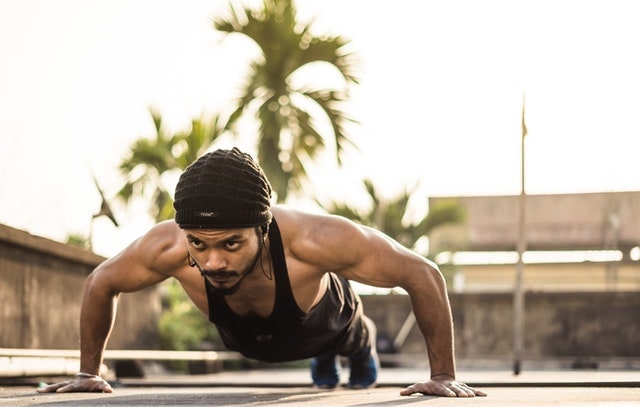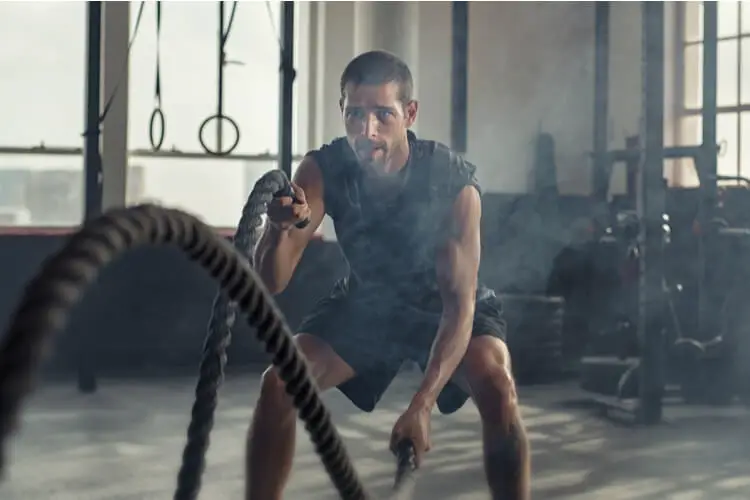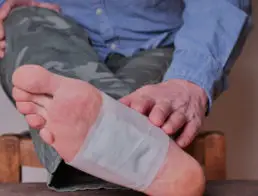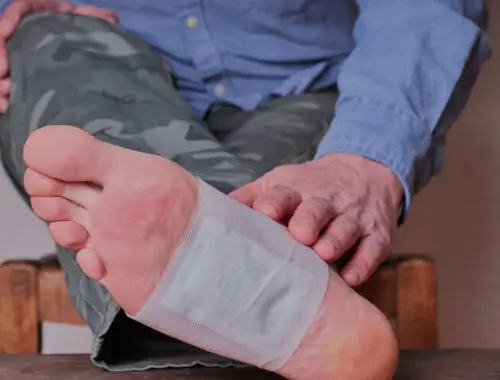Do you want to improve your muscular endurance? Whether you’ve been working out for years or are new to the game, here’s what you need to know to get your muscular health just where you want it.
What is Muscular Endurance?
Muscular endurance is essentially about how many reps you can do of a particular exercise before you need to stop and rest.
That exercise could be a squat, sit-up, bicep curl, or any strength-training exercise.
Muscular endurance is specific to a particular set of muscles. If you’ve practiced squats for weeks but never done a sit-up, you’re going to have much more endurance for squats than for sit-ups.
Why is Muscular Endurance Important?
As well as being important for everyday activities (like carrying heavy bags of groceries), better muscular endurance can help you reach your athletic goals. Whether you want to burn carbs, run a marathon, lift heavier weights, or simply have fun longboarding, your muscular endurance matters.
Some studies suggest that muscular endurance training can improve blood sugar and insulin levels if you have type 2 diabetes. 1
5 Ways to Improve Your Muscular Endurance
1. Doing Muscular Endurance Exercises
Obviously enough, if you want to improve your muscular endurance, you need to focus on exercises that will target muscle groups.
The Australian Institute of Personal Trainers recommends that you don’t simply lift weights, though. They suggest combining cardio training, strength training, and circuit training. 2
They recommend exercises such as:
- Planks (try 5 reps and hold as long as possible; take a break between reps)
- Pushups (aim for 5 sets with 15 reps each)
- Bodyweight squats (aim for 5 sets with 25 reps each)
- Situps (aim for 5 sets with 25 reps each; use a controlled motion)
- Walking lunges (aim for 5 sets of 15 lunges on each leg, keeping your abdomen and core engaged)
Remember, you will only build endurance in the muscles that you’re using. This means it’s important to do a range of different exercises rather than focusing purely on improving your number of reps with one type of exercise.

Image courtesy of Pexels
2. Attending Pilates Classes
Regular pilates sessions could help improve muscular endurance. (Pilates—named after its creator Joseph Pilates—emphasizes flexibility, muscular strength, and endurance movements.) One study found that taking two 60-minute Pilates classes for 12 weeks “was enough to promote statistically significant increases in abdominal endurance, hamstring flexibility, and upper-body muscular endurance” in both men and women. 3
3. Taking Sodium Bicarbonate Supplements
A meta-analysis of a number of other studies found that sodium bicarbonate supplementation acutely improved muscular endurance of both small and large muscle groups. 4 Another systemic review suggests that studies so far have been inconclusive. 5 While sodium bicarbonate is generally safe when used appropriately, it can have the potential for significant toxicity and should not be ingested in quantities greater than 1700mEq. 6
You might think of sodium bicarbonate as a baking ingredient (it helps cakes rise)—but it’s also a supplement used by athletes. Sodium bicarbonate is a salt that can be used to combat high acidity, making it suitable for health issues such as indigestion and stomach ulcers.
4. Taking Caffeine
The jury is out on whether taking caffeine before a workout will improve muscular endurance. One small randomized study showed that although caffeine ingestion temporarily enhanced muscle strength and power, it didn’t improve muscular endurance. 7 Another study suggested that caffeine had a small beneficial effect on muscular endurance. 8
Ultimately, if you find that you enjoy your workout more if you have a coffee first—or if you find yourself able to do more reps or carry on for longer—then by all means continue taking caffeine.

Image courtesy of Pixabay
5. Adding More Exercise Into Your Daily Routine
If you struggle to get to the gym, simply including more exercise in your daily routine can help improve your muscular endurance. You may want to consider taking steps like:
- Using the stairs rather than the elevator when possible. If you can climb 4 flights of stairs in less than a minute (ideally, 45 seconds), then that’s a great indication of heart health, too. If it takes you more than 1.5 minutes, that suggests you should see your doctor for a health checkup. 9
- Walking to work instead of driving (or walking during your lunch break). If you can walk in a forest or woodland area, this can have significant psychological benefits, particularly in reducing anxiety. 10
- Using a standing desk. You might be concerned this will affect your ability to concentrate on your work, but one small study suggested that using a standing desk had no negative effect on performance. 11
It takes time to improve your muscular endurance, but doing so is an important component of fitness. Use the tips above to enhance your muscular endurance, both in the short term and the longer term.
Article Sources
Healing Daily uses only high-quality sources, including peer-reviewed studies, to support the facts within our articles. Read our editorial process to learn more about how we fact-check and keep our content accurate, reliable, and trustworthy.
- Acosta-Manzano P, Rodriguez-Ayllon M, Acosta F, Niederseer D, Niebauer J. Beyond general resistance training. Hypertrophy versus muscular endurance training as therapeutic interventions in adults with type 2 diabetes mellitus: a systematic review and meta-analysis. Obesity Comorbid/Interven. 2020;21(6):ee13007. doi:10.1111/obr.13007
- AIPT. What is muscular endurance and how do you improve it? aipt.edu.au. Published 15 Feb 2019. Accessed 27 Sept 2021.
- Kloubec JA. Pilates for improvement of muscle endurance, flexibility, balance, and posture. J Strength Cond Res. 2010;24(3):661-667. doi:10.1519/JSC.0b013e3181c277a6
- Grgic J, Rodriguez RF, Garofolini A, et al. Effects of Sodium Bicarbonate Supplementation on Muscular Strength and Endurance: A Systematic Review and Meta-analysis. Sports Med. 2020;50(7):1361-1375. doi:10.1007/s40279-020-01275-y
- Hadzic M, Eckstein ML, Schugardt M. The Impact of Sodium Bicarbonate on Performance in Response to Exercise Duration in Athletes: A Systematic Review. J Sports Sci Med. 2019;18(2):271-281. Published 2019 Jun 1.
- Hughes A, Brown A, Valento M. Hemorrhagic Encephalopathy From Acute Baking Soda Ingestion. West J Emerg Med. 2016;17(5):619-622. doi:10.5811/westjem2016.6.30713
- Grgic J, Mikulic P. Caffeine ingestion acutely enhances muscular strength and power but not muscular endurance in resistance-trained men. Eur J Sport Sci. 2017;17(8):1029-1036. doi:10.1080/17461391.2017.1330362
- Warren GL, Park ND, Maresca RD, McKibans KI, Millard-Stafford ML. Effect of caffeine ingestion on muscular strength and endurance: a meta-analysis. Med Sci Sports Exerc. 2010;42(7):1375-1387. doi:10.1249/MSS.0b013e3181cabbd8
- Peteiro Vazquez J, Bouzas-Mosquera A, Rivadulla-Varela C, Barbeito-Caamano C, Vazquez-Rodriguez J. Time to step up 4 flights of stairs gives relevant information on exercise testing performance and results. European Heart Journal – Cardiovascular Imaging. 2021;22(Supplement_1). doi:10.1093/ehjci/jeaa356.196
- Song C, Ikei H, Park BJ, Lee J, Kagawa T, Miyazaki Y. Psychological Benefits of Walking through Forest Areas [published correction appears in Int J Environ Res Public Health. 2020 Feb 18;17(4):]. Int J Environ Res Public Health. 2018;15(12):2804. Published 2018 Dec 10. doi:10.3390/ijerph15122804
- Labonté-LeMoyne E, Jutras MA, Léger PM, et al. Does Reducing Sedentarity With Standing Desks Hinder Cognitive Performance?. Hum Factors. 2020;62(4):603-612. doi:10.1177/0018720819879310









